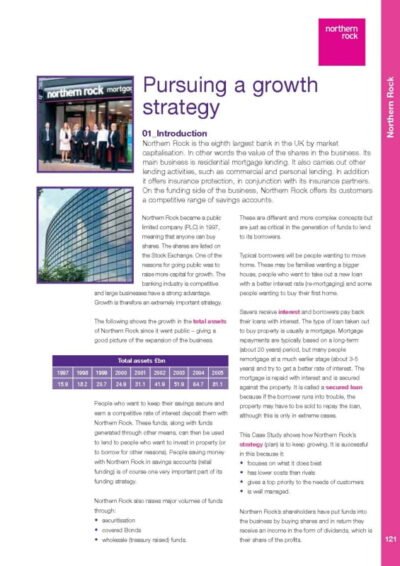The media plays a vital role in politics by serving as a platform for political discourse, informing the public, and holding politicians accountable. It acts as an intermediary between the government and citizens, ensuring that people are informed about the actions and decisions of their elected representatives. Various media forms, including television, radio, newspapers, and online platforms, disseminate political news and analysis, which shape public opinion and influence political outcomes.
The media functions as a watchdog, monitoring the activities of politicians and government institutions. It plays a crucial role in exposing corruption, scandals, and unethical behavior within the political sphere. Through investigative journalism and holding politicians accountable, the media helps maintain transparency and integrity in the political system.
Additionally, the media provides a platform for political debates, interviews, and discussions, allowing politicians to communicate their policies and agendas to the public. In a functioning democracy, the media’s role is essential. It provides citizens with the information necessary to make informed decisions when voting and holds those in power accountable for their actions.
A free and independent media is crucial for maintaining a healthy and transparent democratic system, as without it, the public would lack insight into government operations and be unable to hold elected officials accountable.
Key Takeaways
- Media plays a crucial role in shaping public opinion and influencing political discourse.
- Media bias can significantly impact public perception and contribute to polarization in society.
- Social media has become a powerful tool for political discourse and can influence public opinion on a large scale.
- The media has the power to shape public opinion through framing, agenda setting, and priming.
- Media plays a significant role in political campaigns, influencing voter behavior and candidate image.
- Journalism serves as a watchdog, holding politicians accountable for their actions and decisions.
- The future of media will continue to have a significant impact on politics, with the rise of digital media and new communication technologies.
Media Bias and its Impact on Public Perception
Forms of Media Bias
Media bias can take many forms, including selective reporting, omission of key facts, and framing stories in a way that supports a particular narrative. This can lead to a distorted view of political events and issues, as well as a lack of understanding of opposing viewpoints.
The Consequences of Media Bias
When the media is biased, it can create polarization and division within society, as people are exposed to only one side of the story. Furthermore, media bias can erode trust in the media as an institution. When people perceive that the media is not presenting information in an objective and fair manner, they may become skeptical of news sources and disengage from the political process altogether.
The Threat to Democracy
This can have serious consequences for democracy, as an informed and engaged citizenry is essential for a healthy political system.
The Influence of Social Media on Political Discourse

Social media has revolutionized the way political discourse takes place, providing a platform for individuals to express their opinions, engage with political content, and connect with like-minded individuals. Platforms such as Facebook, Twitter, and Instagram have become powerful tools for political communication, allowing politicians to reach a wide audience and engage directly with voters. Social media has also played a significant role in shaping political movements and mobilizing grassroots activism.
From the Arab Spring to the Black Lives Matter movement, social media has been instrumental in organizing protests, spreading awareness, and amplifying marginalized voices. It has provided a platform for individuals to share their experiences and perspectives, leading to greater awareness of social and political issues. However, social media also has its drawbacks when it comes to political discourse.
The spread of misinformation and fake news has become a significant problem on social media platforms, leading to confusion and polarization among users. Furthermore, social media algorithms can create echo chambers, where individuals are only exposed to content that aligns with their existing beliefs, leading to further polarization and division. Despite these challenges, social media has undoubtedly had a profound impact on political discourse.
It has democratized access to information and provided a platform for marginalized voices to be heard. As social media continues to evolve, its influence on political discourse is likely to grow even further.
The Power of Media in Shaping Public Opinion
The media has an immense power in shaping public opinion by controlling the narrative around political events and issues. Through news coverage, analysis, and commentary, the media influences how people perceive political figures, policies, and events. This power can have far-reaching consequences for political outcomes and public attitudes.
The framing of stories by the media can significantly impact how people understand and interpret political events. By emphasizing certain aspects of a story while downplaying others, the media can shape public opinion in a particular direction. This can lead to polarization and division within society, as people are exposed to different narratives based on their choice of media outlets.
Furthermore, the media’s power in shaping public opinion extends to its portrayal of political figures. Through news coverage and commentary, the media can influence how politicians are perceived by the public. Positive or negative coverage can significantly impact a politician’s popularity and electability.
The power of the media in shaping public opinion underscores the importance of a free and independent press in a democratic society. When the media is able to present information in an objective and fair manner, it can help to ensure that citizens are well-informed and able to make decisions based on accurate information.
The Relationship between Media and Political Campaigns
The relationship between media and political campaigns is complex and multifaceted. Political campaigns rely on the media to reach voters, communicate their message, and shape public opinion. In turn, the media plays a crucial role in covering political campaigns, providing information to the public, and holding candidates accountable.
Media coverage of political campaigns can have a significant impact on their outcome. Positive or negative coverage can influence how candidates are perceived by the public and ultimately affect their electability. Furthermore, the media serves as a platform for candidates to communicate their policies and agendas to voters through interviews, debates, and advertisements.
However, the relationship between media and political campaigns is not without its challenges. Media bias can impact how campaigns are covered, leading to unequal or unfair treatment of candidates. Furthermore, the rise of social media has created new challenges for political campaigns, as they must navigate an increasingly fragmented media landscape.
Despite these challenges, the relationship between media and political campaigns is essential for a functioning democracy. Political campaigns rely on the media to reach voters and communicate their message, while the media plays a crucial role in providing information to the public and holding candidates accountable.
The Role of Journalism in Holding Politicians Accountable

Journalism plays a critical role in holding politicians accountable for their actions by providing investigative reporting, fact-checking, and analysis of government policies and decisions. Through rigorous journalism, reporters uncover corruption, expose scandals, and shine a light on unethical behavior within the political sphere. Investigative journalism is particularly important for holding politicians accountable.
By digging deep into complex issues and uncovering hidden truths, investigative reporters play a crucial role in maintaining transparency and integrity within government institutions. This type of journalism is essential for ensuring that those in power are held accountable for their actions. Furthermore, fact-checking has become increasingly important in an era of misinformation and fake news.
Journalists play a crucial role in verifying information and debunking false claims made by politicians. By holding politicians accountable for spreading misinformation, journalists help to maintain the integrity of public discourse. The role of journalism in holding politicians accountable is essential for maintaining a healthy democracy.
Without a free and independent press that is able to uncover corruption and expose unethical behavior within government institutions, citizens would be left in the dark about the actions of their elected officials.
The Future of Media and its Impact on Politics
The future of media is likely to have a profound impact on politics as new technologies continue to reshape how information is disseminated and consumed. The rise of social media has already had a significant impact on political discourse, providing new opportunities for politicians to reach voters and engage with constituents. Furthermore, advancements in artificial intelligence and data analytics are likely to further transform how political campaigns are conducted.
These technologies have the potential to revolutionize how politicians target voters, craft messages, and mobilize support. However, the future of media also presents challenges for politics. The spread of misinformation on social media platforms has become a significant problem that threatens to undermine public trust in democratic institutions.
Furthermore, concerns about privacy and data security have raised questions about how new technologies will impact political campaigns. As new technologies continue to reshape how information is disseminated and consumed, it is essential that policymakers work to ensure that the future of media supports a healthy democratic system. This will require addressing issues such as misinformation on social media platforms, protecting privacy rights, and ensuring that new technologies are used in ways that promote transparency and accountability within the political sphere.
In conclusion, the role of media in politics is essential for maintaining a healthy democracy. From shaping public opinion to holding politicians accountable, the media plays a crucial role in ensuring that citizens are well-informed and able to make decisions based on accurate information. As new technologies continue to reshape how information is disseminated and consumed, it is essential that policymakers work to ensure that the future of media supports a healthy democratic system.
One related article to Media and Politics is “The Importance of Security in Business” which discusses the role of security in protecting businesses from external threats. This is relevant to the discussion of media and politics as it highlights the importance of safeguarding information and ensuring the integrity of news reporting. The article can be found here.
FAQs
What is the role of media in politics?
The media plays a crucial role in politics by providing information to the public, shaping public opinion, and holding political leaders accountable. It serves as a watchdog, informing citizens about government actions and policies.
What is media bias in politics?
Media bias refers to the perceived or actual prejudice in news coverage or reporting that favors one political party, candidate, or ideology over another. Bias can manifest in the selection of stories, framing of issues, and the tone of reporting.
How does social media impact politics?
Social media has transformed the political landscape by providing a platform for political discourse, mobilizing voters, and shaping public opinion. It has also raised concerns about the spread of misinformation and the influence of algorithms on political content.
How does media influence public opinion?
Media influences public opinion through the selection and framing of news stories, the portrayal of political figures, and the presentation of different viewpoints. It can shape public perceptions and attitudes towards political issues and candidates.
 The importance of effective communication (MP3)
The importance of effective communication (MP3)  Pursuing a growth strategy - Northern Rock (PDF)
Pursuing a growth strategy - Northern Rock (PDF)  The Operations Collection Business Case Studies eBook
The Operations Collection Business Case Studies eBook 